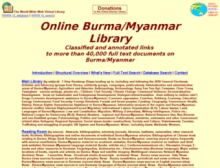Resource information
Thai university professor and international law expert, Vitit Muntarbhorn, looks at the application of labour standards as they relate to migrant workers in Thailand. Professor Vitit concludes with a series of 12 recommendations for both government and non-government sectors. This publication also contains copies of all six sub-regional, bilateral, MOUs on counter trafficking and employment cooperation...
"...Migrant workers can contribute greatly to their home and destination countries, if the process is well managed and
if they are protected from abuse and exploitation. In reality, the situation is rendered complex by that fact that many
do not enter the destination countries legally. In the market of demand and supply, regrettably many are victims of
human smuggling and trafficking. Moreover, influxes of migrant workers who come without the necessary documents,
such as visas and work permits, often result in draconian measures such as deportation from the territory of the
destination countries, without adequate guarantees for their safety and dignity.
The lesson from Thailand is that to date, a closed door policy on migration from neighbouring countries has not
worked, given the porous border and Thailand's own labour market which acts as a pull factor. Wisely the country is
now moving towards a new and more open door policy: managing migration through cooperation between the
countries of origin and Thailand as a destination country, and synchronizing with Thailand's own labour market. In
2005 the country introduced a regularization process based upon registration of migrant workers and their employers,
with guarantees for basic rights, and this needs to be supported well in terms of effective implementation and
humane treatment of all workers....CONTENTS: Foreword...
Executive Summary...
1. Introduction...
2. Employment/Protection of Migrant Workers in Thailand...
3. Thai Laws/Practices...
4. International Labour Standards...
5. National Laws/Practices and International Labour Standards...
6. Directions...
7. Notes.


